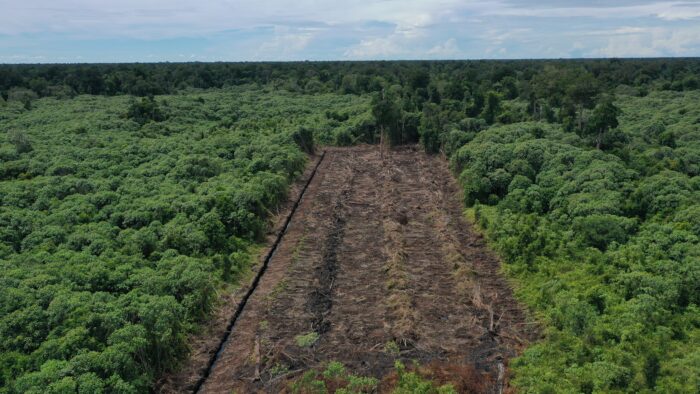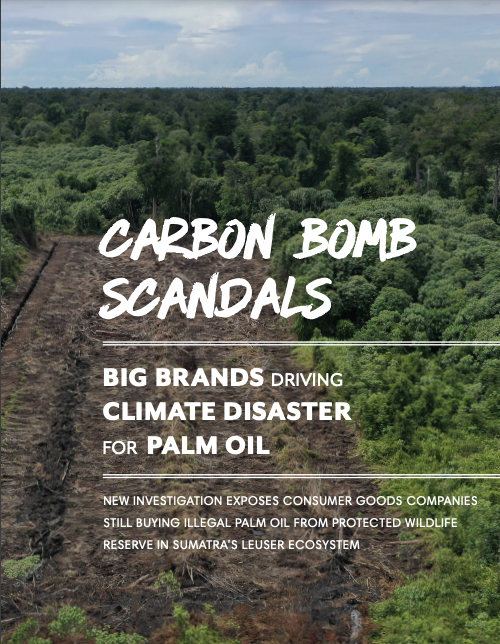New Investigation Exposes Consumer Goods Giants Still Buying Illegal Palm Oil From Protected Wildlife Reserve in Sumatra’s Leuser Ecosystem
*View and download the full report here.
Published the first day of Climate Week NYC and two days before the meeting of the Consumer Goods Forum (CGF) Rainforest Action Network (RAN) has released a new report that shows conclusively that deforestation linked to major consumer goods companies is on the rise, not falling, in the nationally protected Rawa Singkil Wildlife Reserve in Indonesia’s globally important Leuser Ecosystem. The driver of this destruction is Conflict Palm Oil.
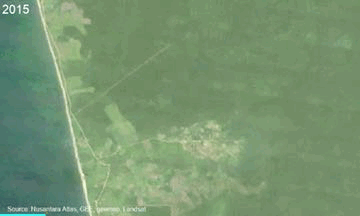
Caption: Timelapse of encroaching deforestation in the Rawa Singkil Wildlife Reserve
Using evidence obtained through field investigations, satellite imagery analysis and supply chain research, RAN’s investigation proves that palm oil produced in this protected nature reserve, in violation of corporate deforestation-free commitments, continues to make its way into the products sold by Procter & Gamble, Mondelēz, Nestlé, Unilever, PepsiCo, Colgate-Palmolive, Ferrero, Nissin Foods and other CGF members. Other brands, such as Mars and Kao, continue to do business with the palm oil traders caught sourcing illegal palm oil from the reserve. The images below prove that illegal deforestation on peat swamps has persisted after the December 2015 cut-off date adopted by these brands and most CGF members.
RAN campaigners will be in person in New York this week to deliver our demands to the CGF – will you join us to add your voice to the petition calling for an end to rainforest destruction and climate chaos for palm oil?
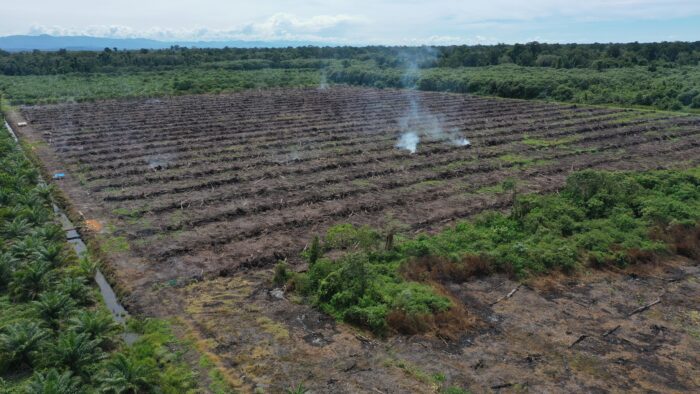
For decades now, the destruction of Indonesia’s peatlands has been a globally significant driver of carbon pollution into the atmosphere. In the lead up to the Paris COP21 climate summit in 2015, fires from peatlands being cleared for palm oil production in the country were recorded to be spewing more carbon into the sky than the entire emissions of the United States combined. Since then, the multinational brands responsible for this climate catastrophe have issued new “Forest Positive” pledges and collective plans to end deforestation and address their role in driving climate change through their consumption of palm oil. In May 2022, two Rainforest Action Network field investigations uncovered that these “Forest Positive” pledges are not being fulfilled on the frontlines of palm oil expansion in Indonesia. A major finding of the report is that these brands have failed to break their ties to illegal palm oil grown at the expense of carbon-rich peatlands inside the Rawa Singkil Wildlife Reserve since a similar scandal exposed by RAN in 2019.
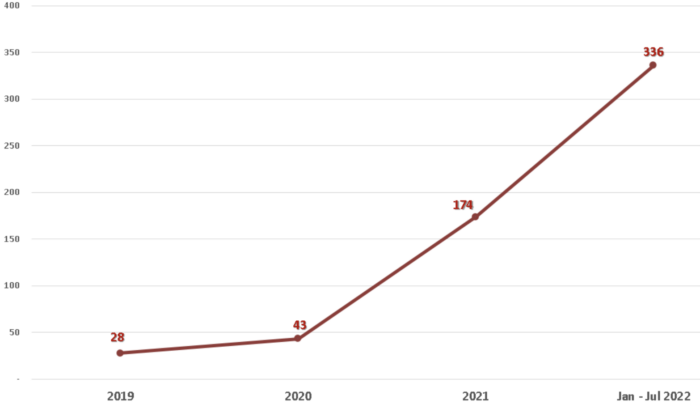
Caption: The graph above shows the deforestation linked to major consumer goods companies is on the rise, not falling, in the nationally protected Rawa Singkil Wildlife Reserve in Indonesia’s globally important Leuser Ecosystem.
Despite the CGF’s claims of scaling up individual and collective action to address deforestation through a “Forest Positive Approach,” its members have failed to stop sourcing illegally produced palm oil that destroyed carbon-rich peat swamps in the Leuser Ecosystem. The “Forest Positive Approach” will be written off by consumers as greenwash until its members can prove they have stopped sourcing deforestation-fueled palm oil grown at the expense of Indonesia’s most precious intact forest landscapes–– including the Leuser Ecosystem.
